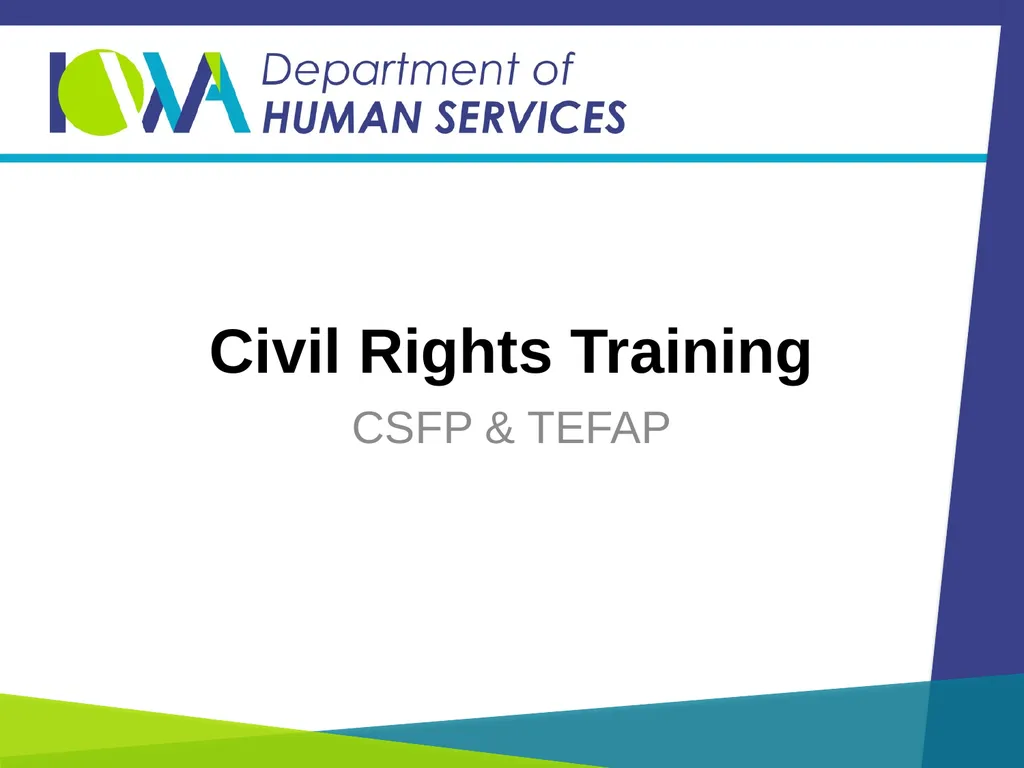
Author : aaron | Published Date : 2025-08-04
Description: Civil Rights Training CSFP TEFAP Civil Rights are the non-political rights of a citizen and are guaranteed by the 13th and 14th Amendments of the U.S. Constitution and Acts of Congress. Organizations that accept Federal financialDownload Presentation The PPT/PDF document "" is the property of its rightful owner. Permission is granted to download and print the materials on this website for personal, non-commercial use only, and to display it on your personal computer provided you do not modify the materials and that you retain all copyright notices contained in the materials. By downloading content from our website, you accept the terms of this agreement.
Here is the link to download the presentation.
"Civil Rights Training CSFP & TEFAP Civil Rights"The content belongs to its owner. You may download and print it for personal use, without modification, and keep all copyright notices. By downloading, you agree to these terms.













